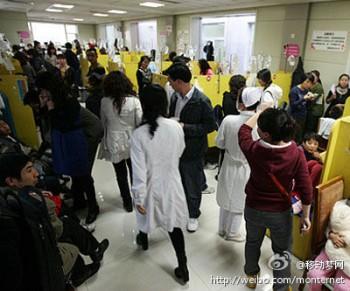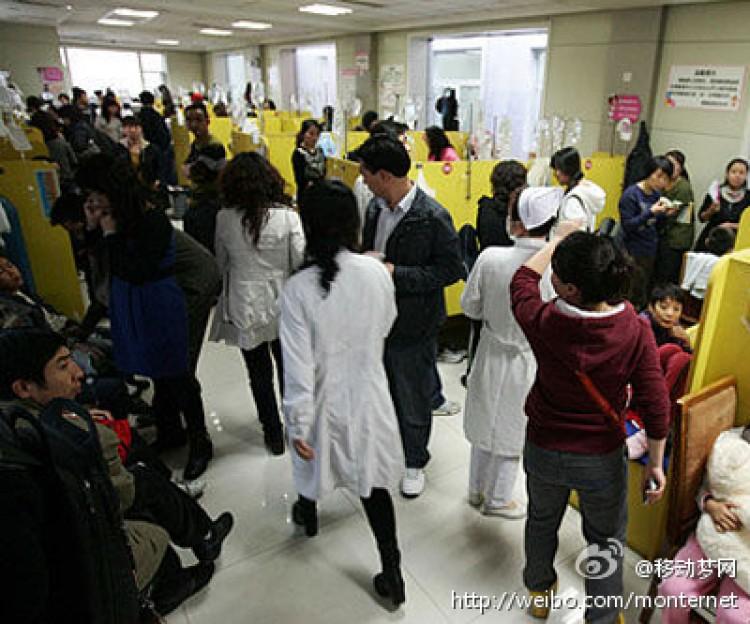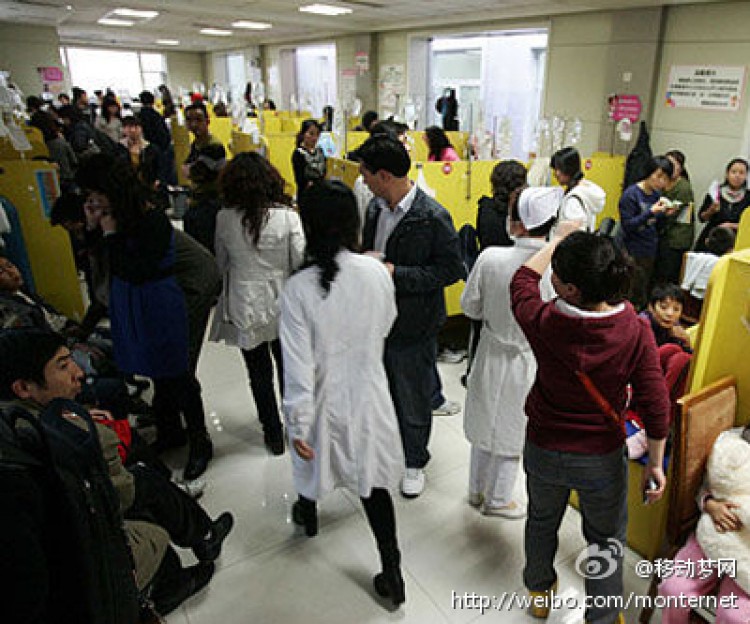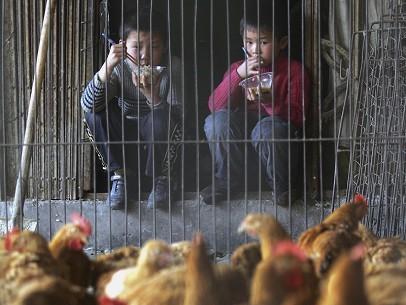Food Poisoning in Chinese School Cafeterias a Growing Concern
On Oct. 9, 141 boarding students in Xinxiao bilingual experimental primary school exhibited symptoms of fever, vomit, and diarrhea after dinner.

n Oct. 9, 141 boarding students in Xinxiao bilingual experimental primary school exhibited symptoms of fever, vomit, and diarrhea after dinner. A scene at the provincial hospital where they were taken. Weobo.com
|Updated:





